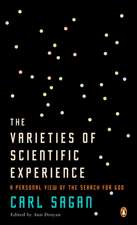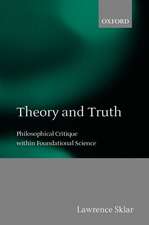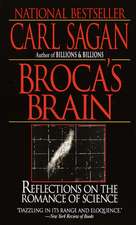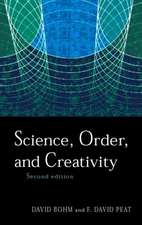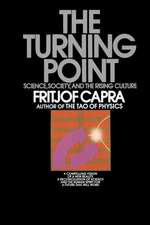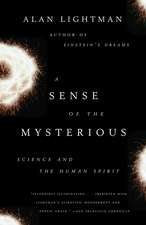A Pluralist Theory of the Mind: European Studies in Philosophy of Science, cartea 2
Autor David Ludwigen Limba Engleză Hardback – 4 noi 2015
The starting point is the plurality of ontologies in scientific practice. Not only can we describe the world in terms of physical, biological, or psychological ontologies, but any serious engagement with scientific ontologies will identify more specific ontologies in each domain. For example, there is not one unified ontology for biology, but rather a diversity of scientific specializations with different ontological needs. Based on this account of scientific practice the author argues that there is no reason to assume that ontological unification must be possible everywhere. Without this ideal, the scope of ontological unification turns out to be an open empirical question and there is no need to present unification failures as philosophically puzzling “placement problems”.
| Toate formatele și edițiile | Preț | Express |
|---|---|---|
| Paperback (1) | 360.64 lei 38-44 zile | |
| Springer International Publishing – 23 aug 2016 | 360.64 lei 38-44 zile | |
| Hardback (1) | 392.21 lei 43-57 zile | |
| Springer International Publishing – 4 noi 2015 | 392.21 lei 43-57 zile |
Preț: 392.21 lei
Nou
Puncte Express: 588
Preț estimativ în valută:
75.05€ • 78.57$ • 62.10£
75.05€ • 78.57$ • 62.10£
Carte tipărită la comandă
Livrare economică 07-21 aprilie
Preluare comenzi: 021 569.72.76
Specificații
ISBN-13: 9783319227375
ISBN-10: 3319227378
Pagini: 201
Ilustrații: XIV, 201 p. 2 illus.
Dimensiuni: 155 x 235 x 17 mm
Greutate: 0.51 kg
Ediția:1st ed. 2015
Editura: Springer International Publishing
Colecția Springer
Seria European Studies in Philosophy of Science
Locul publicării:Cham, Switzerland
ISBN-10: 3319227378
Pagini: 201
Ilustrații: XIV, 201 p. 2 illus.
Dimensiuni: 155 x 235 x 17 mm
Greutate: 0.51 kg
Ediția:1st ed. 2015
Editura: Springer International Publishing
Colecția Springer
Seria European Studies in Philosophy of Science
Locul publicării:Cham, Switzerland
Public țintă
ResearchCuprins
Introduction.- Pluralism and Scientific Practice.- Beyond Placement Problems.- A Historical Diagnosis.- Part I In Defense of Conceptual Relativity.- Conceptual Relativity in Philosophy.- Conceptual Relativity in Science.- The Demarcation Problem of Conceptual Relativity.- Part II From Conceptual Relativity to Vertical Pluralism.- The Argument from Horizontal Pluralism.- The Argument from Ontological Non-Fundamentalism.- Part III Beyond the Mind-Body Problem.- Consciousness.- Beyond Dualism and Physicalism.- Mental Causation.- Epilogue: Metaphysics in a Complex World.
Notă biografică
David Ludwig is a philosopher of science at VU University Amsterdam. He studied philosophy, history of science, and cognitive science in Berlin, Potsdam, and Stanford. His research in philosophy and history of the life sciences focuses on debates about scientific ontologies and human nature.
Textul de pe ultima copertă
This book challenges common debates in philosophy of mind by questioning the framework of placement problems in contemporary metaphysics. The author argues that placement problems arise when exactly one fundamental ontology serves as the base for all entities, and will propose a pluralist alternative that takes the diversity of our conceptual resources and ontologies seriously. This general pluralist account is applied to issues in philosophy of mind to argue that contemporary debates about the mind-body problem are built on this problematic framework of placement problems.
The starting point is the plurality of ontologies in scientific practice. Not only can we describe the world in terms of physical, biological, or psychological ontologies, but any serious engagement with scientific ontologies will identify more specific ontologies in each domain. For example, there is not one unified ontology for biology, but rather a diversity of scientific specializations with different ontological needs. Based on this account of scientific practice the author argues that there is no reason to assume that ontological unification must be possible everywhere. Without this ideal, the scope of ontological unification turns out to be an open empirical question and there is no need to present unification failures as philosophically puzzling “placement problems”.
The starting point is the plurality of ontologies in scientific practice. Not only can we describe the world in terms of physical, biological, or psychological ontologies, but any serious engagement with scientific ontologies will identify more specific ontologies in each domain. For example, there is not one unified ontology for biology, but rather a diversity of scientific specializations with different ontological needs. Based on this account of scientific practice the author argues that there is no reason to assume that ontological unification must be possible everywhere. Without this ideal, the scope of ontological unification turns out to be an open empirical question and there is no need to present unification failures as philosophically puzzling “placement problems”.
Caracteristici
Explains how contemporary Mind-Body debates can be understood as a result of metaphysical placement problem Describes conceptual relativity in contemporary scientific practice Calls for an open empirical approach in ontological unification













